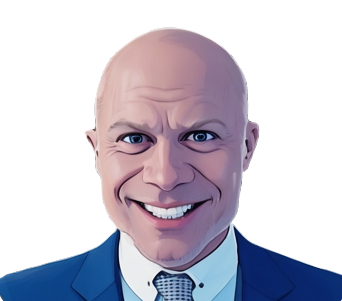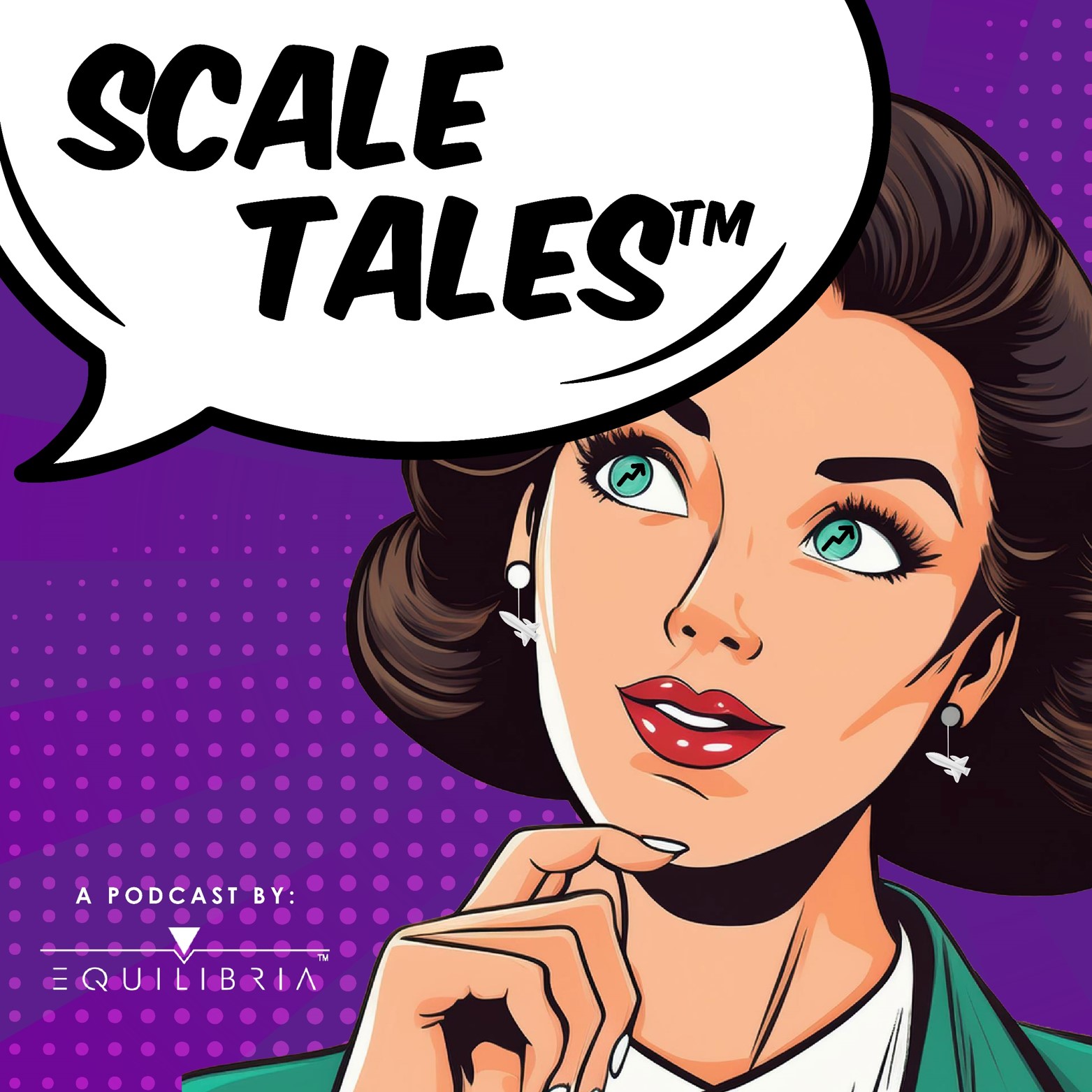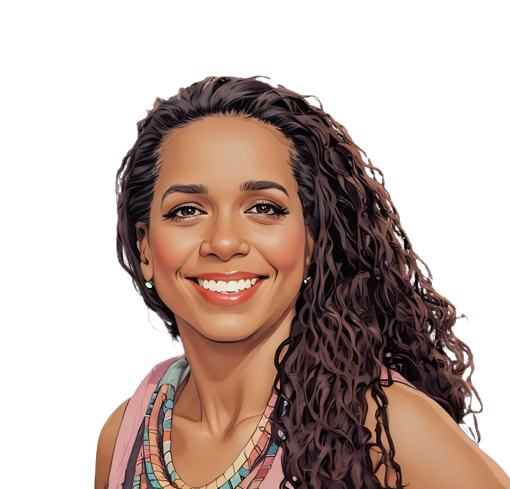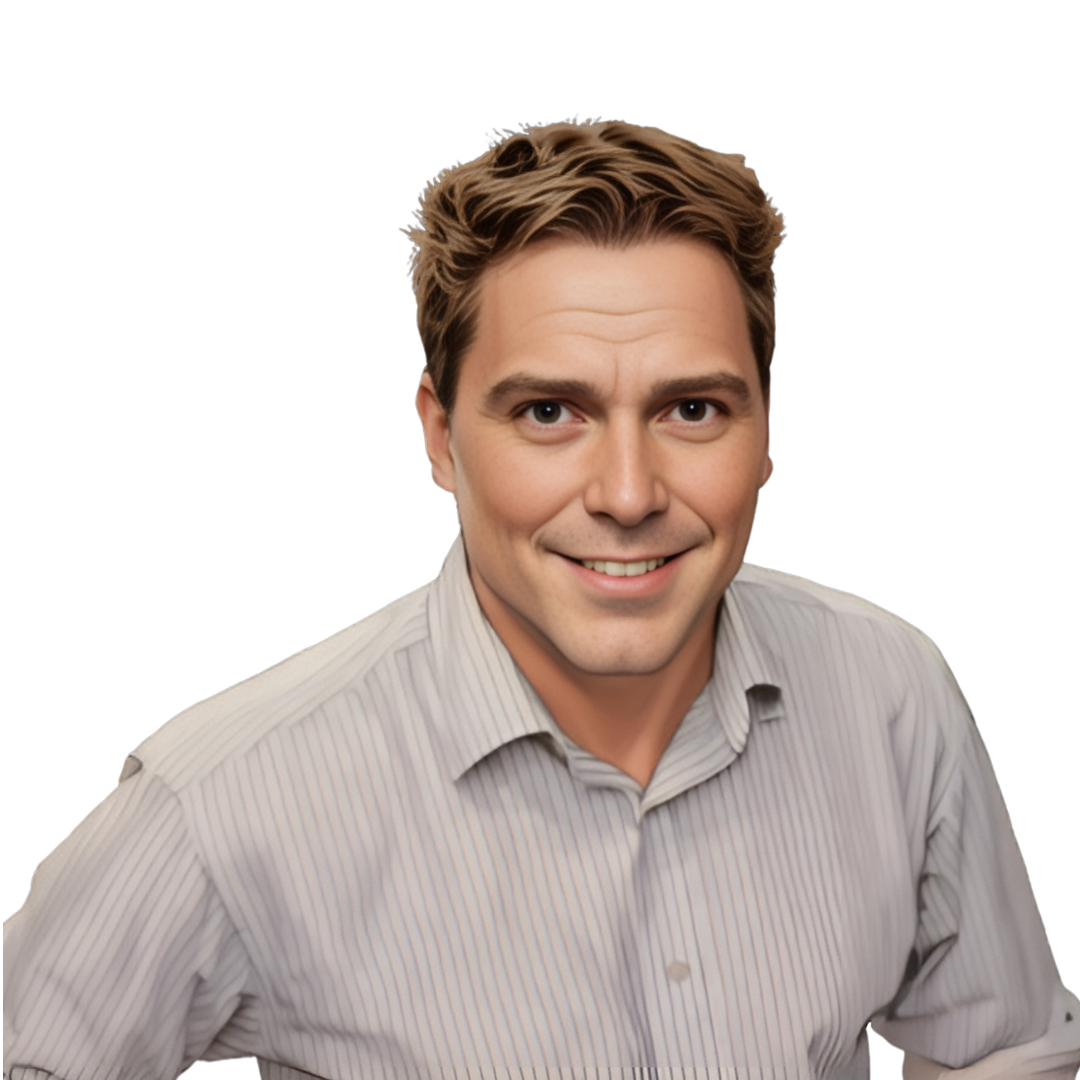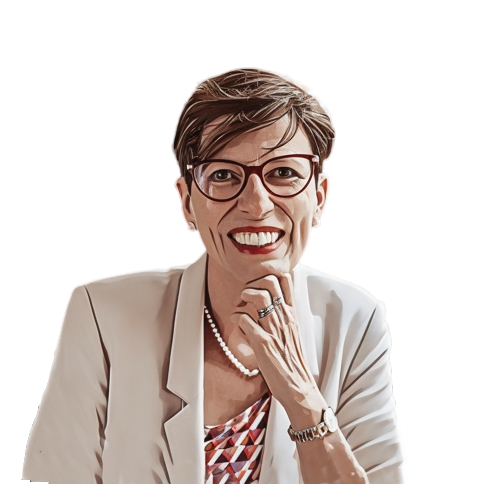Transcript
Have you ever wondered what it would be like to live or work in another country? Be honest. I know I have. It’s a big reason why my team operates remotely around the world. But it’s not the same as living in those countries. How do you get over the mental hurdles to try something different in your business when everyone is telling you, “No!”
Welcome to Scale Tales – a business storytelling podcast where businesspeople just like you come on and share those extraordinary moments when they scaled a business, a team, or even a new product or service.
This episode is brought to you by Equilibria, Inc. Equilibria provides training to assist fast-growing companies in documenting and improving their key processes for maximum operational performance. Visit EQBsystems.com to learn more. That’s EQBsystems.com.

Our first scale tale comes from Richard Blank. He’s the founder and CEO of Costa Rica’s Call Center. His journey to the successful entrepreneur he is today spans across three continents and is filled with introspection and sprinkled with lots of common sense along the way. Stay tuned as he takes us along for an interesting ride.
This is Ep. 1: How Richard Blank Built Costa Rica’s Largest Call Center

My name is Richard. I’m a very proud Northeast Philadelphia boy. So I grew up there graduated Abington high school in 91, my team university of Arizona, class of 96, Spanish and communication. And I moved to Costa Rica when I was 27 years old to work at a friend’s call center for a couple of years. And from there, I pretty much learned the business from the inside and out. And in my mid-thirties, I took the chance and started my own company. And here we
are today, 14 years later…
Hold up, hold up, hold up…wait a minute. Richard! Surely there’s more to your story than this. Let’s try that again!
How about this? When I was in high school and I graduated, most of my friends were going to Ivy league and studying law and medicine, engineering, and architecture. I myself decided to double down on languages. It was my favorite class and at the University of Arizona, once again, being a communication major, I was able to focus on public speaking rhetoric and non-verbal communication. And so that was very important for me.
Sometimes I kind of felt like a dreamer and I was almost doing this alone, but since my great grandparents came from Europe, from Romania, Russia, Germany, and Poland, they came at the turn of the century. And so when they came to the United States in the early 20th century and they learned English and were entrepreneurs is pretty much my strongest argument to my parents on what I was trying to do. Our family were nomads. We were risk-takers. And for me, all I know is that I wanted some sort of adventure and I know that by learning a second language, it would open many doors for me. And so my natural progression pretty much got me to where I am today.
Okay, now that’s much better! Context always helps! So now we know why Richard is so passionate about language. In fact, his last two years at university were critical in setting the foundation for turning his love of language into a career.
I was an intern in Tucson for my final two years of college. And so there is these two really influential gentlemen. One was Miguel Kitana that did the news out of Los Angeles. And the other was Pedro SEF SAC who had a really popular talk show. And when they used to come to Tucson, I would go to certain events with them. And these individuals would encourage me and give me advice and tell me how to be more professional. So really hats off to them. But prior to
that, I did spend my junior year in Spain. I was there for two semesters and I didn’t come home over Christmas break. And so what I would do is with my backpack, I traveled for two months through Europe and I was having the most incredible conversations every day, meeting, meeting people from all over the world.
Backpacking around Europe opened a whole new world for Richard. He learned the valuable lessons of evaluating and focusing on what really matters in life as well not taking certain things, experiences, or people for granted.
And what I figured out then was that the things that we hold so dear in the United States really didn’t make a difference overseas. And we’re really just looking at your essence. So it just opened my mind that there are other places in the world where I could learn and be accepted. And I guess my main thing, and I’m very proud of this is that, you know, when you’re 21 years old in Europe, all you want to do is party and have a good time, which I did. But if a party began
at eight, o’clock what I made sure to do before that time was to see as many museums and buildings and as much artwork and architecture as I could. So at least I could put in my time to grow and see these incredible historical artifacts that made our cultures, our Western civilization. And so that was the year that I read more books and didn’t watch television and really mastered Spanish. And so that was probably the year that I grew the most.
Sounds like Richard was maturing into a self-aware young man. But then, just as he was coming into his own, he had to return to the U.S. to complete his studies. He went back with a renewed sense of purpose and a calling to do something bigger than himself.

What was a huge culture shock because once again, my mind was adjusted towards another sort of lifestyle. And then I was thrown right back into the competitive north American culture. Interning for Telemundo was one thing just for work experience, but I wanted to do something above and beyond. So there was an organization in Tucson called Casa de Los Ninos, and it’s a place for abused and neglected children. And so when I was lying by the pool, one day, I heard that they were having a Corvette raffle. So I put in, cause I’d love to, you know, win a Corvette, but I didn’t, but I met the organization there and I offered my services to see if I could raise money for them. And so my fraternity on campus did a haircut marathon raised, close to $800 for them. And so what I tried to do was something that was not egocentric.
I wanted to not only show my marketing and promotion skills, but coming back from Europe, I wanted to give back, I wanted to pay it forward. I figured that since I was given so many special opportunities, was there any chance that I could use this sort of knowledge and momentum for good? And I think a lot of it has to do with maturity as well, because I took that responsibility very seriously. So once again, by doing that, fundraising landed me that internship. And then
post-grad, I landed a great job with the importers of Corona.
Wow! What a life so far and at this point, Richard’s only in his early 20s. He’s had an internship at the popular Spanish channel, Telemundo, he’s studied abroad in Spain, and graduated, landing a job with importers of the well-known beer, Corona.
And I was doing promotions and public relations in Spanish. But once again, I wasn’t completely fulfilled. And if you can get past your parents’ guilt, you can live anywhere in the world. And so when that one-in-a-million opportunity crossed my path, I decided to take it!
Turns out it was a year after working with those importers of Corona that Richard’s one-in-a-million opportunity surfaced…in Costa Rica.
I literally had to make a decision to stay in the United States and continue working or to go down there for a couple of months. And I guess it was more of my intuition because there’s a lot of naysayers out there at least, and then seen the “Negative Nancies” and “Debbie Downers.” And these are usually the people that love you so much. And, and they’re trying to protect you, but my intuition said, “Richie, go for it! I know that this is the right thing. You’re not just dipping a toe. You’ve been studying Spanish your whole life. And I believe that you could do well.”

And if it didn’t work out, I could have always come home after a couple months. But I also believe in positive reinforcement. And the fact that I did learn a second language, I was openminded and embraced this new culture and traditions here. It really gave me this reinforcement stay here. And I fell in love with the girl of my dreams and we got married and, and we started a life together here and started a business together here. So as much as it’s different from my
family’s expectations in the United States and what all of my friends did once again, I was being very true to myself that 18-year-old that decided to take that huge risk on myself and not to be able to compare notes to my friends that were doing different things. But the one thing I do know is that my circle did support me.
And so me being from Philadelphia, I guess I was doing the “Rocky.” I wanted to go the distance. I just wanted to see if I could do it. Even if I got beat up and knocked out, your friend, Richard was at least going to try. And at the end of the day, at least I could look at myself in the mirror and be okay with that.
So, there he was…a wide-eyed Richard, full of ambition, relocated to Costa Rica, optimistic about his future. To be more specific, that one-in-a-million opportunity was conducting training for over 5,000 employees at an extremely large call center in San Jose, the capital of Costa Rica.
That was one of the most incredible experiences that I ever had. I took second languages seriously. And so I wanted to ensure that they increased their vocabulary through the thesaurus so they could learn similes and they could be more diplomatic and strategic and also add a call center. I don’t know if you’ve ever worked at one before, but we’ve seen them in the movies and people know of the reputations, but I’d like to maybe destroy some of those stereotypes and
misconceptions. A lot of people make a living doing customer support and making outbound and receiving calls for companies. It just so happens that a call center has a certain infrastructure in regards to I.T. support and, and the sort of equipment we have and the levels of supervision.
Notice Richard said, “infrastructure.” He’s really talking about business infrastructure – the linking of an organization’s people, processes, and tools (which includes the equipment he’s referring to) for sustainable and profitable growth.
And so what I saw walking in here was an environment where English second language agents were conversing on the calls were converting calls and getting positive, escalations, getting amazing feedback today, since everything is now, omni-channel, non-voice support where all we’re doing is chatting and texting. I still saw the artist’s speech. I thought it was beautiful. I, I saw the fact of doing client retentions and doing upsells and getting referrals. And Alicia, even if
worst case scenario, when you have somebody on the phone and you might be losing that account, there might be an exit interview to give you suggestions on how you could have earned that account or what the competition had done to get their business. And so, to me, I felt it was very important that these agents receive their dignity because being a C-level executive, I have leverage. And the most important thing is to show empathy and to let them know they’re not expendable.
These operational practices and keen observations would eventually become the cornerstone of Richard’s own business.
And these are the sort of things when I was working at my friend’s center for all those years was the simplest code to crack. As much as I wish I could give you tech advice or some sort of financial, shortcut…my friend, it’s really just about synergy. It’s really about how a person is treated and, and the way you break bread with them and the way you onboard them and give them the resources.
Over the next four years, Richard soaked up as much knowledge as possible and ultimately decided to take the entrepreneurial plunge based on some key tenets.
For me, it was very easy to start a new company because I was just doing it the old school way and the way that we were raised. And when I was in my thirties, there was a couple of things. And I don’t mind being forthright with you.
First is maturity. Second was impulse control. And the third thing was having enough finances to start a company, weather storms, and to be very responsible for job stability. And so I’m not telling people just to jump into a new endeavor on a whim. Naturally, I spent many years at a place to understand the business, but there’s a certain time when you know, what your value is and how important one hour is. And instead of just making all the money for myself, why don’t I
expand it and make a certain percentage off of each person and to delegate and to help them grow.
And I think the greatest thing that a business owner could do is to find individuals within their organization that will increase the stability of their foundation and to be able to grow. I, I don’t like bringing in outside supervisors, I’ll bring in specialists for the I.T. department, every single person that has been with me, especially over a decade, they’ve raised the ranks and they’re a 100% perfect representation of this company culture here. And so to me is, as a business owner,
I, I think I get the most satisfaction as to see people mastering levels, cracking codes, and growing with me. I love that the most.
On October 4, 2007, the website for Richard’s new company went live. He named his company Costa Rica’s Call Center. By February, 2008…
Landed my first account, one seat, 50 hours. I was working out of my home and I didn’t really rent an actual space yet. I was renting stations. There was a blended mixed floor call center that would rent you a turnkey station and they had the security and the I.T. support. And so what I could do is I could pay the agent’s salary and benefits, pay the overhead and make a margin off of that. And so I did that for a couple years to be able to earn enough stable clients and enough resources to then rent space, where I purchased 150 stations, the equipment, and the server room.
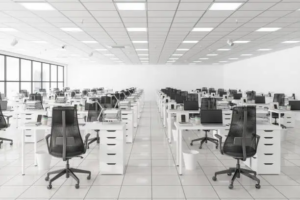
By the third month, I was in way over my head. And so my wife who was a top jewelry sales woman for cafe bird at the airport, decided that it was time to work with me. She and I built this company together and she took over the human resources, the accounting, and she’s our legal representative with the government. And so for me, it was very easy because I’m very heavy online in regards to search engine optimization. So a lot of the accounts were coming in just through my own influence on the internet.
And over the course of six years, I saved enough money to be able to purchase a three-floor building that can house 300 agents. And I did this without any sort of loans or partners or mortgages because I don’t like paying interest.
The year is 2008. Richard lands his first client and eventually grows and scales Costa Rica’s Call Center from 1 seat to 150 on up to 300 seats! I’m sure you’re wondering how he achieved this kind of scale in just six years without seeking outside investments. Don’t go anywhere because after the break Richard will share the details of how he did it and…how he sustains it!
Some small businesses fail not from the lack of customers, but from too many. When your business receives positive publicity, it’s exciting! The spotlight attracts more customers and the cash flows in. But too much growth too soon can be catastrophic especially if your business lacks the business infrastructure to support this growth.
Behind the Façade: How to Structure Company Operations for Sustainable Success is a book that introduces a proven framework for building business infrastructure. The book is structured into six relatable stories of entrepreneurs who apply this framework, giving
you an inside look at how they solve their fast growth issues and how you can too! Pick up your copy today at BehindtheFacadeBook.com. That’s BehindtheFacadeBook.com.
We’re back and before the break, we learned about the humble beginnings of Costa Rica’s Call Center and how Richard Blank, as founder & CEO, scaled its operations without outside investments. But how? … Well, one thing he did in the beginning was buying used. That is, he strategically purchased either brand new or gently used furniture and computers from other call centers that were going out of business. Here’s Richard…
I saved an enormous amount of money because what happens during recessions and COVID, you could take setbacks and you need to have enough acorns to weather the winter and what I was capable of doing it just wasn’t for myself it was really for the agents, to ensure that they get paid and have that job stability because it’s multi-generational families here. A lot of the agents do pay for rent and medicine and take care of their families. So there is a lot of responsibility on their shoulders. And so for me, as much as I wish I ramped up a lot faster or took out loans and had all the, you know, the top floor penthouse suites. no, I did it like a tortoise, not the hare, very slow and steady and everything was done with cash. And once again, as long as my margins were there and I was doing excellent work with my clients, I was able to sustain and to grow.
As with any business, Richard is well aware there’s always both internal and external threats – things like competition, for example, from the big guys. But there are some benefits that smaller businesses can offer that, frankly, larger enterprises can’t or won’t offer.
Now, my main challenge is, is attrition because we have some very large centers here – Amazon, including them. But what’s given me, I guess, my scalability and growth, as I mentioned earlier, is how someone is treated. And so just by doing that has enabled me to have agents that have been with me for years and have done excellent work.
In fact, what we do is it’s usually a 10 or a 15 to one supervisor to agent ratio and the agents there could still be considered a team lead or a coach or an ACE for side-by-sides. Once again, we have a quality assurance department, human resources department, I.T. department security department. And so you could wear all these hats to overextend yourself. And it’s very important if somebody isn’t a certain department that they could be versatile to assist you in other areas as well. And one of the greatest things I could do is to give somebody as much experience as possible. And secondly, I also believe in right bus right seat, or you definitely belong here. It’s just a matter of which campaign would you feel most comfortable and be the most productive.
Speaking of over-extending yourself, Richard’s also very clear on setting boundaries.
There’s five campaigns we don’t do here. I have nothing against it. We don’t do sports books, casino, stocks, pharmacies, and sweepstakes, the campaigns we work with, for an example certain verticals, I do inbound support for movies and music.
I also work with a law firm. I do outbound lead gen for transportation and for industrial real estate. Our verticals are across the board and I usually reject more campaigns than I accept for two reasons. A, I just want to make sure I can fulfill the client’s needs. And second, sometimes there’s a clash between our labor laws and what their expectations are. And then there might be some sort of company culture in the Northeast that likes to curse and yell and try to reverse psychology you, but that doesn’t really work here. And so they have to be very attuned towards not only the Costa Rican culture, but the sort of culture that I have here. And it’s very important that there is that sort of mutual respect that we have here. The agents are not expendable and don’t treat them as such. And so the first thing for me to do is once again, to establish these sort of boundaries and perimeters with the potential clients, just so that there’s no surprises.
Those boundaries also extend to where Richard actually conducts business.
We just focus mainly on the United States, Canada, a little bit of Europe, and it’s to be able to fulfill the needs because there might be campaigns that I can’t do. I can’t do Chinese language capacity. Cause if I can’t personally understand it, it would be difficult for me. And I don’t do graveyard shift. And sometimes I can’t match offshore pricing in India and the Philippines, but, you know, on something like this, we have about a dozen clients at the moment. And once
again, as much as I’d like to scale and grow a lot larger, I’m just more at a comfort level where I just want to make sure that I can fulfill the needs.
In other words, Richard wants to make sure his back-office operations can keep pace with customer demand. One way he does this is through company culture – creating an environment where agents can thrive.In other words, Richard wants to make sure his back-office operations can keep pace with customer demand. One way he does this is through company culture – creating an environment where agents can thrive.
A lot of them love the fact that I break bread with them and that we have a certain culture here where they can make a name for themselves very fast. Each one of those relationships we have with people is very delicate, but I’ll share a million-dollar secret with you. When people are applying to work at Costa Rica’s Call Center, they’ll fill out a resume and put in all the bells and whistles and why you want to hire them.

I specifically asked for them to turn the paper over and to give me a couple paragraphs of a coming-of-age moment. They ask what that means. And I explain about a coming of age when you beat up the bully or you saved the kitten from the tree and they will write something, which is incredible. And it’s not really for, to add to the steam. It’s really on a rainy Wednesday when they got off a very difficult call or they’re unbalanced. I can remind them of a time when they were a champion and they won. And so as long as they’re willing to disclose to me a time when they were either vulnerable or on top of the world, that will allow me to understand a little bit more of the psyche of the agent. So then we can work with them in certain ways to be able to reset and rebalance their sort of, energies at that time.
It’s obvious to me that as a leader, Richard has a high EQ – Emotional Intelligence. With all his wisdom, I was curious about what he’s read…were there any books he found to be transformative in his professional development? That’s when he told me about a book that a friend handed him during his life-changing two-month stay in Europe over 20 years ago. That book, written by Hervey Allen in 1933, is called, “Anthony Adverse.” – a multi-volume 1,234 paged book to be exact.
I made a commitment to read it over those two months when I was on the Eurail, but it was really a story about an 18th century dreamer, about someone that fell in love and traveled the world and had a lot of people assisting them along the way, because I’m a firm believer that success is built on 1 million Thank Yous. And a lot of people out there have contributed to my momentum. And besides that book, I guess my second favorite book is the Giving Tree by Shel Silverstein.
While I’m grateful to Richard for those book recommendations, I must admit that I was surprised by his parting words of advice to us. He started talking about the symbiotic relationship between perception and appearance.
You have my commitment and I know your audience can’t see me today, but I dressed up for you. I’m wearing a three-piece suit. How I dress for you and how I dress for my agents. And it’s also how I dress for myself. Because if I can’t treat myself like golden, I can’t find my own balance and center, how can I focus on others? And so the most important thing for me, is to give myself my own me time, where I can find my center. I can do some meditation. I, I can wash
my convertible on a Sunday, play some pinball or workout in the morning and, and really give myself that recharge and that sort of energy. So then I’ll have an abundance to share with others.
I think the greatest thing you can do in the beginning is to be very humble, appreciative. It’s like the game of life, you need to start out in the tent and then you end up in the, in the mansion, but you go through your certain stages.
And as long as you can keep pace where you act your wage and you do it accordingly, you’re going to be exceptionally successful. Most people love to hear about the story. They could care less about where I am today. They really want to know about the struggle. And I guess my last parting bit of advice is dedicated practice. If anybody really wants to master their craft, they have to put in the time off the camera when your friends aren’t around, when you’re by yourself. And so if you can invest that sort of time in yourself, you’ll be more than prepared when the time comes to shine.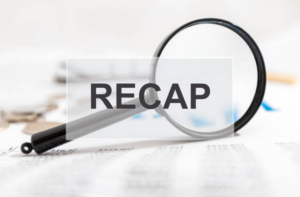
And when that time comes to shine, you’ll be ready for the spotlight! Thank you Richard for sharing your scale tale with us. Here’s a recap of some lessons learned:
- Don’t overextend yourself.
- Be slow to scale.
- Remember, cash is king!
- Treat your people well, even if it means turning away business.
- Act your wage! Don’t be a bigshot and end up spending money you don’t have and can’t pay back.
- Invest in yourself.
- Put in the work! Have the discipline to show up even when no one is looking.
A special thank you again to Richard Blank for kicking off our new show! This story originally appeared on our sister podcast. It’s called Business Infrastructure – Curing Back Office Blues.
Visit the show notes at ScaleTalesPodcast.com for links to the books Richard mentioned as well as information on where to find him and his company online. Again, that’s ScaleTalesPodcast.com.
Thank you for listening! If you learned something valuable from this episode, please leave us a five-star rating and review wherever you’re listening.

I’m Alicia Butler Pierre and I wrote, produced and narrated this episode. Olanrewaju Adeyemo edited the audio. Music production and original score by Sabor! Music Enterprises. And the show notes are by Erika Ve Revilla.
You’ve been listening to Scale Tales.










